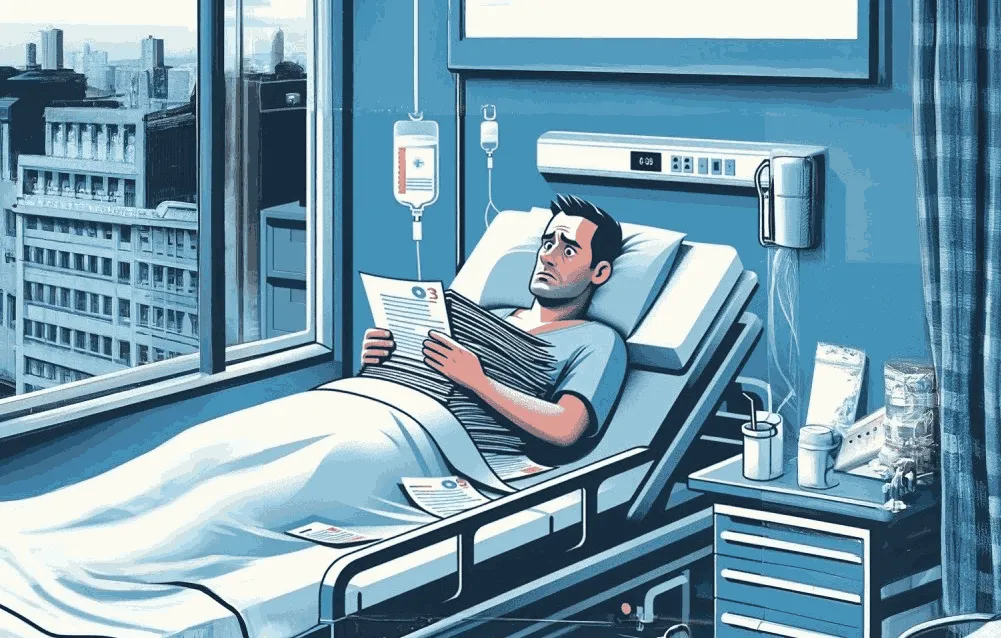Understanding Cancer Insurance: What Should You Know?
Cancer insurance is designed to provide financial assistance if you're diagnosed with cancer. It can cover a wide range of expenses, from diagnostic tests to treatment and recovery. In the Philippines, many insurance companies offer specialized cancer insurance plans, but not all policies are created equal. As a result, it’s essential to thoroughly understand the details of each plan to find one that fits your needs.
Here are some key factors to keep in mind when choosing cancer insurance:
Coverage Scope: How Comprehensive Should It Be?
When you're looking for cancer insurance, it's vital to choose a policy with a broad scope of coverage. Ideally, the plan should cover various cancer types, from early-stage cancers to more advanced forms. Some policies only cover specific cancer treatments, such as chemotherapy or radiation, but a more comprehensive plan will also include hospitalization, medications, and even alternative therapies like acupuncture or homeopathic treatments.
Aside from the primary cancer treatments, it's essential to verify whether the insurance plan covers diagnostic tests, doctor consultations, and follow-up care. Cancer treatment often requires a multidisciplinary approach, involving multiple specialists and ongoing monitoring, so having a plan that covers all these aspects is critical for managing both the illness and its costs.
Payout Structure: Lump-Sum vs. Reimbursement Plans
Cancer insurance policies can vary significantly in how they provide financial support. Most plans fall under two main payout structures: lump-sum or reimbursement.
- Lump-sum payout: This option provides a one-time payment upon diagnosis. The lump-sum can be used however you see fit, whether it’s for medical treatment, paying off debts, or managing daily expenses during your recovery. This type of flexibility can be highly beneficial, especially if cancer impacts your ability to work or causes unforeseen costs beyond medical bills.
- Reimbursement structure: With this type of plan, the insurance company reimburses you for specific medical expenses, typically after treatment has been completed. This option requires you to keep track of receipts and submit claims, which may be more cumbersome, but it ensures that the money is spent strictly on treatment.
Depending on your personal circumstances, a lump-sum payout might offer more peace of mind, allowing you to have immediate funds on hand. However, if you're confident in your ability to manage claims and prefer a plan that directly addresses your medical expenses, reimbursement could be a better fit.
Waiting Periods: When Does Coverage Start?
A critical factor to consider is the waiting period, which refers to the time before your coverage becomes active after purchasing the policy. Cancer insurance policies typically have waiting periods ranging from 30 to 90 days. During this time, claims related to cancer diagnoses are not eligible for coverage.
If you have a family history of cancer or other risk factors, it might be prudent to select a plan with a shorter waiting period. It's also essential to be aware of any exclusions related to pre-existing conditions, as some policies may not cover cancers diagnosed before the plan was purchased.
Read More: Factors to Consider Before Buying Cancer Insurance
Financial Stability of the Insurer: Can You Trust Them?
The last thing you want to worry about when dealing with a cancer diagnosis is whether your insurance company will honor your claim. Researching the financial stability of your chosen insurance provider is crucial. You can check their reputation by looking at online reviews, company ratings, and the experiences of others who have filed claims.
Additionally, it’s wise to consider how long the insurance provider has been in the market. Established companies with a strong track record are more likely to provide reliable service. Be sure to confirm the insurer’s claim settlement ratio, which reflects how efficiently they process and approve claims. A higher ratio indicates a better chance of your claim being approved when you need it most.
How Much Does Cancer Insurance Cost in the Philippines?
Cancer insurance costs vary significantly based on several factors, including the coverage level, age, health status, and the insurance company you choose. In general, cancer insurance in the Philippines can range from as low as ₱6,000 per year for basic coverage to more than ₱100,000 annually for more comprehensive plans.
What Determines the Cost of Cancer Insurance?
Several factors contribute to the cost of your policy:
- Coverage amount: Basic plans often provide coverage of ₱500,000 to ₱1,000,000 for cancer-related medical expenses. These more affordable plans generally cover essential treatments like chemotherapy and medications but may exclude other costs, such as hospital stays or alternative therapies.
- Age and health: Younger, healthier individuals tend to pay lower premiums, while older individuals or those with a history of health issues might face higher costs. Age-related increases in cancer risk are reflected in the premiums.
- Optional add-ons: Many cancer insurance plans offer additional features, such as coverage for critical illness or hospitalization. Adding these features will increase the cost but can provide more comprehensive protection.
Affordability vs. Coverage: How to Strike the Right Balance
When choosing a cancer insurance plan, it's important to find a balance between affordability and comprehensive coverage. While a low-cost plan might be easier on your budget, it may not provide adequate coverage in the event of a cancer diagnosis. Conversely, a more expensive plan may offer extensive coverage but could strain your finances over the long term.
Tip: Compare the pricing and benefits of multiple insurance companies before making a decision. You can also look for companies that offer monthly payment options, which can make it easier to manage premiums without a significant upfront financial commitment.
Why Cancer Insurance Is Crucial for Financial Protection
Cancer treatment is expensive, with the cost of chemotherapy, medications, surgery, and hospitalization quickly adding up. Having cancer insurance ensures that you're financially protected if you're diagnosed with the illness. This financial support can relieve the pressure of choosing between receiving the best treatment and maintaining financial stability.
Financial Peace of Mind
One of the most significant benefits of cancer insurance is the peace of mind it offers. Cancer is unpredictable, and even if you're living a healthy lifestyle, it's impossible to completely eliminate the risk. With cancer insurance, you have a safety net that allows you to focus on recovery without worrying about how to pay for treatments.
Support for Long-Term Treatment
Cancer often requires long-term treatment, with ongoing costs for follow-up care, medication, and regular check-ups. Cancer insurance provides continued financial support to ensure you receive the necessary care for as long as you need it.
Choosing the Best Cancer Insurance Plan: Where to Begin?
Picking the right cancer insurance plan involves careful consideration of your unique needs, family medical history, and budget. Here are some steps to help you get started:
- Assess your risk: Consider your age, family history, and lifestyle to determine your risk level for cancer. If you have a higher risk, you may want to opt for a plan with more extensive coverage.
- Compare plans: Research different insurance providers and the plans they offer. Pay attention to the coverage details, waiting periods, exclusions, and costs associated with each plan.
- Consult an expert: If you're unsure which plan to choose, consulting with a financial advisor or insurance expert can help you make a more informed decision.
- Read the fine print: Before committing to a plan, thoroughly review the policy details to ensure you understand what is covered, the claim process, and any limitations.
Why Choose Cancer Insurance from Oona?
Oona Insurance stands out as a reliable provider of cancer insurance in the Philippines by offering comprehensive and flexible coverage options. Our plans cover a wide range of cancer types and offer 100% lump-sum payouts, which can be used for various expenses, such as hospitalization, medication, and aftercare. With transparent terms, affordable premiums, and easy claims processing, Oona ensures financial security and peace of mind during challenging times. Explore more details on Oona's plans here.
Conclusion
Cancer is an unpredictable and life-changing diagnosis, but you can take steps to protect your financial future. With the right cancer insurance plan in place, you can have the peace of mind that you're prepared for whatever comes next. Take the time to research your options, compare plans, and choose the policy that best fits your needs and budget. Having the right protection in place allows you to focus on what truly matters—your health and recovery.





















